Table of Contents
ToggleIn a world where water sometimes feels as rare as a unicorn sighting, embracing water conservation technology is more crucial than ever. Picture this: while some folks are still using the old “let it run while I brush my teeth” method, savvy innovators are turning the tide with smart solutions that save both water and money. Who knew being eco-friendly could also be so wallet-friendly?
From high-tech irrigation systems that make farmers feel like they’ve got a personal assistant to sensors that remind homeowners to stop showering like they’re training for the Olympics, these technologies are game-changers. Water conservation isn’t just a buzzword; it’s a lifestyle that’s here to stay. Dive into the world of water-saving innovations and discover how they’re making a splash in the fight against water waste.
Overview of Water Conservation Technology
Water conservation technology represents a critical strategy for addressing the global water crisis. Innovative solutions like smart sprinkler systems allow users to optimize water use in gardening and landscaping. Real-time sensors play a crucial role in monitoring soil moisture levels, ensuring that irrigation only occurs when necessary.
Advanced data analytics offer insights into water consumption patterns, enabling both homeowners and farmers to make informed decisions. Rainwater harvesting systems capture and store rain for later use, significantly reducing dependence on municipal water sources. Greywater recycling systems provide an efficient way to reuse water from sinks and showers, promoting a sustainable approach to everyday activities.
Farms that implement precision agriculture utilize GPS technology to enhance irrigation efficiency. Water-saving fixtures such as low-flow showerheads and faucets help minimize water waste in residential settings. Smart water meters give homeowners immediate feedback on their usage, highlighting opportunities for improvement.
Various mobile applications provide users with tips and reminders to conserve water. Utilizing drought-resistant landscaping not only saves water but also enhances the aesthetic value of properties. Chemical-free solutions for maintaining water quality in pools reduce the need for excessive water changes, further conserving resources.
Overall, the integration of these technologies fosters a collective effort towards sustainability. By adopting modern water conservation techniques, society moves closer to ensuring water availability for future generations.
Types of Water Conservation Technology

Various water conservation technologies enhance efficiency and minimize waste. These innovative systems address water scarcity while promoting sustainable practices.
Smart Irrigation Systems
Smart irrigation systems utilize sensors and weather data to optimize watering schedules. These systems adjust based on real-time conditions, reducing water waste significantly. For instance, a smart controller can automatically shut off when rainfall occurs, ensuring plants receive adequate moisture without overwatering. Homeowners and farmers benefit from installing these systems, as they streamline water usage and lower utility bills.
Rainwater Harvesting
Rainwater harvesting systems capture and store rainwater for various applications. Homeowners can install barrels or cisterns to collect runoff from rooftops. Collected rainwater becomes a valuable resource, suitable for irrigation or non-potable uses like toilet flushing. This method not only conserves potable water but also reduces stormwater runoff, benefiting local ecosystems.
Greywater Recycling
Greywater recycling systems treat and reuse water from sinks, showers, and washing machines. Homeowners can divert this water for irrigation or toilet flushing, significantly reducing overall water consumption. Installing a greywater system allows for sustainable water use without compromising comfort. Many municipalities encourage this practice through incentives, promoting wider adoption across communities.
Benefits of Water Conservation Technology
Water conservation technology offers significant advantages for both the environment and the economy. Implementing these technologies fosters sustainable practices that benefit individuals and communities alike.
Environmental Impact
Environmental benefits of water conservation technology include reduced water waste and protection of ecosystems. Efficient irrigation systems minimize runoff, allowing nutrients to remain in the soil. Rainwater harvesting captures and stores rainwater, alleviating pressure on local water supplies. Greywater recycling systems treat wastewater, enabling reuse for non-potable applications, thus conserving potable water. By optimizing water use, these technologies contribute to the preservation of natural habitats and biodiversity, supporting healthier ecosystems overall.
Economic Advantages
Water conservation technology presents various economic advantages for individuals and businesses. Implementing smart water meters helps track consumption, leading to reduced utility bills. Installing advanced irrigation systems lowers water costs for farmers while improving crop yields. Rainwater harvesting can decrease reliance on municipal water, providing financial savings for households and businesses. Cost-effective fixtures and appliances significantly reduce water waste, further enhancing savings. Overall, integrating these technologies creates a more financially sustainable future while promoting efficient water use practices.
Challenges in Implementation
Implementing water conservation technology presents several challenges that hinder widespread adoption.
Cost Considerations
Cost poses a significant barrier for many users. Initial investments in advanced water-saving systems often deter individuals and businesses from upgrading. For instance, smart irrigation systems and greywater recycling equipment require substantial upfront fees. Long-term savings on water bills may offset these costs, but many still view the initial expense as prohibitive. Public and private incentives can alleviate financial burdens, promoting adoption of these essential technologies. Stakeholders must develop funding models to support effective implementation while ensuring accessibility for all.
Public Awareness and Education
Public awareness and education are crucial for the successful introduction of water conservation technologies. Many people remain unaware of the technologies or their benefits. Programs that educate communities about water scarcity and conservation methods can significantly influence attitudes. Engaging campaigns can highlight the effectiveness of tools like rainwater harvesting systems, fostering greater acceptance. Furthermore, schools and local governments play vital roles in disseminating information. By providing resources and training, these entities help raise awareness and encourage responsible water use, contributing to a shift towards sustainable practices.
Future Trends in Water Conservation Technology
Emerging technologies are set to transform water conservation practices. Smart irrigation systems will become more prevalent, leveraging weather data and soil moisture levels to ensure precise watering. Advanced algorithms will optimize efficiency, leading to reduced water waste in agricultural and landscaping applications.
In addition, the growth of IoT devices will further enhance water management. Sensors placed strategically throughout landscapes will monitor moisture levels continuously, allowing automated systems to adjust irrigation schedules instantly. These solutions promote sustainability while minimizing labor costs.
Rainwater harvesting applications will also see significant advancements. Improved filtration and storage systems will enable homeowners to use harvested rainwater more effectively for irrigation and non-potable needs. This shift will encourage more widespread implementation of rainwater systems in urban settings.
Moreover, greywater recycling technology will gain traction in both residential and commercial properties. Enhanced treatment systems will provide users with the ability to repurpose water from sinks, showers, and washing machines for irrigation and toilet flushing. As efficiency improves, the acceptance of greywater systems will likely increase.
Mobile applications will play a crucial role in fostering water conservation awareness. By providing real-time data and personalized tips, users can monitor their water usage and receive notifications about optimal conservation practices. Further, gamification elements could motivate users to adopt sustainable behaviors.
Finally, educational initiatives will drive the adoption of these technologies. Through partnerships with local governments and organizations, community programs focused on water conservation will raise awareness and showcase the benefits of modern water-saving solutions. Empowering individuals with knowledge will be essential for cultivating a culture of sustainability.
Water conservation technology is essential for addressing the growing challenge of water scarcity. By adopting innovative solutions like smart irrigation systems and rainwater harvesting, individuals and communities can significantly reduce water waste while enjoying economic benefits. These advancements not only enhance efficiency but also promote sustainable practices that protect valuable ecosystems.
As technology continues to evolve, the potential for greater impact in water management becomes clearer. Increased public awareness and education will play a crucial role in encouraging the adoption of these technologies. Embracing water conservation as a lifestyle choice will ensure a sustainable future, securing water resources for generations to come.







